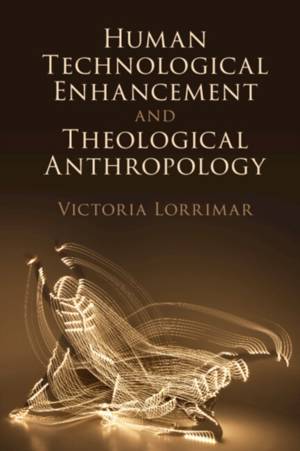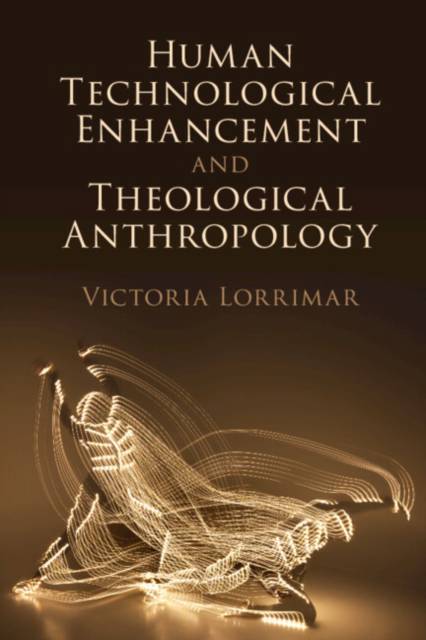
Bedankt voor het vertrouwen het afgelopen jaar! Om jou te bedanken bieden we GRATIS verzending (in België) aan op alles gedurende de hele maand januari.
- Afhalen na 1 uur in een winkel met voorraad
- In januari gratis thuislevering in België
- Ruim aanbod met 7 miljoen producten
Bedankt voor het vertrouwen het afgelopen jaar! Om jou te bedanken bieden we GRATIS verzending (in België) aan op alles gedurende de hele maand januari.
- Afhalen na 1 uur in een winkel met voorraad
- In januari gratis thuislevering in België
- Ruim aanbod met 7 miljoen producten
Zoeken
€ 183,45
+ 366 punten
Omschrijving
In this book, Victoria Lorrimar explores anthropologies of co-creation as a theological response to the questions posed by technologically enhanced humans, a prospect that is disturbing to some, but compelling for many. The centrality the imagination for moral reasoning, attested in recent scholarship on the imagination, offers a fruitful starting point for a theological engagement with these envisioned technological futures. Lorrimar approaches the topic under the purview of a doctrine of creation that affirms a relationship between human and divine creativity. Traditionally, theological treatments of creativity have been almost exclusively applied to artistic endeavours. Here, Lorrimar breaks new ground by extending such theological accounts to include technology, and uniting them with the strengths of scientific accounts of co-creation. She draws on metaphor studies, cognitive sciences, as well as literary studies, to develop an account of human creativity in relation to divine creativity, which is then applied to various enhancement scenarios.
Specificaties
Betrokkenen
- Auteur(s):
- Uitgeverij:
Inhoud
- Aantal bladzijden:
- 358
- Taal:
- Engels
Eigenschappen
- Productcode (EAN):
- 9781316515020
- Verschijningsdatum:
- 5/05/2022
- Uitvoering:
- Hardcover
- Formaat:
- Genaaid
- Afmetingen:
- 140 mm x 216 mm
- Gewicht:
- 603 g

Alleen bij Standaard Boekhandel
+ 366 punten op je klantenkaart van Standaard Boekhandel
Beoordelingen
We publiceren alleen reviews die voldoen aan de voorwaarden voor reviews. Bekijk onze voorwaarden voor reviews.









